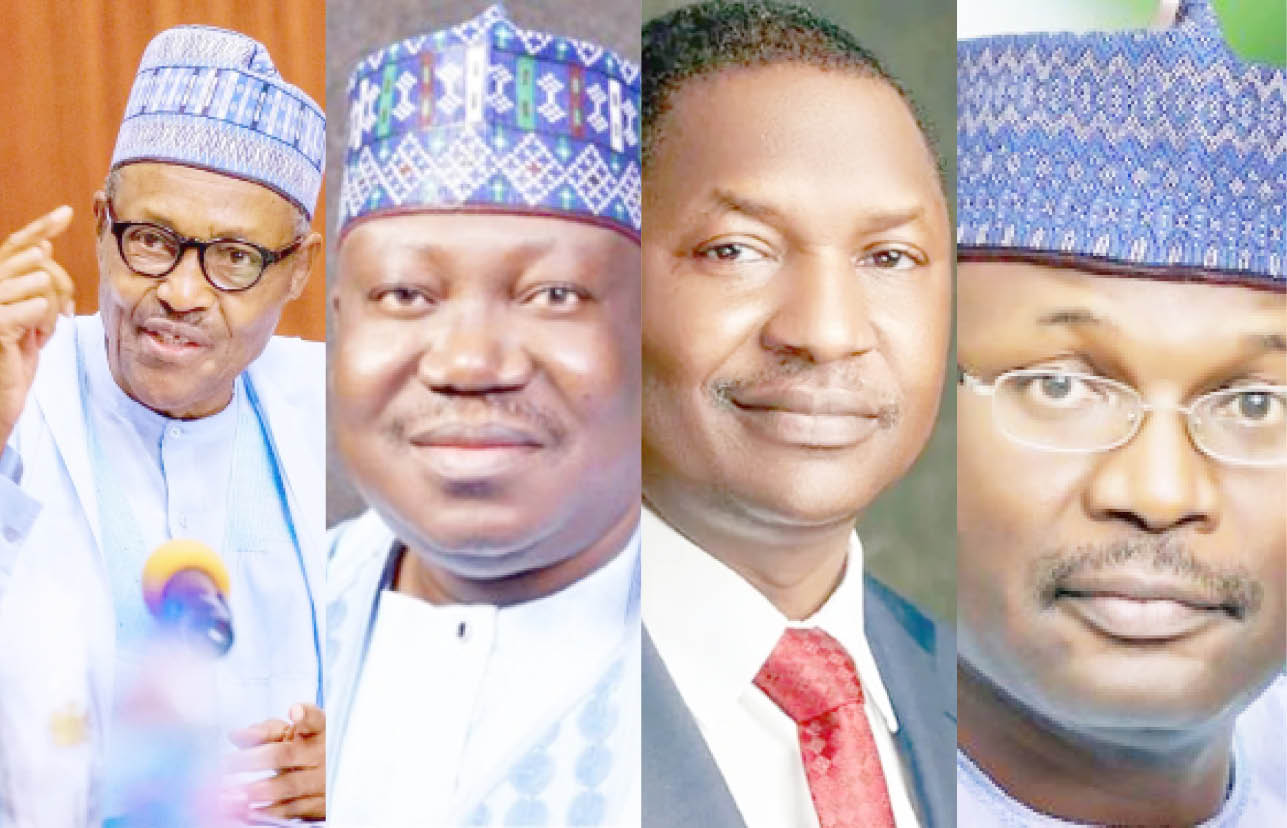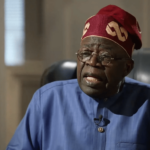As many Nigerians heaved a sigh of relief that the country’s much-anticipated Electoral Act had been actualised after a long egoistic warfare between the National Assembly and the executive, a Federal High Court in Abia State raised another dust when it nullified the contentious section 84(12) of the Act and ordered that it should be deleted.
This prompted the federal lawmakers, after considering separate motions in both chambers, to resolve to appeal the judgement, opening a new phase of the raging battle over the electoral law.
The Electoral Act Amendment Bill, which essentially was to amend the 2010 version, started its torturous journey in the 8th Assembly, which had a frosty relationship with the executive. That time, President Muhammadu Buhari declined assent three times. It suffered a monumental setback close to the 2019 polls when the president rejected the bill citing proximity to the date of elections.
Even in the 9th Assembly, which relates “on same page” with the executive, the bill had its twists and turns, with back and forth movement between the three arms of government.
The federal lawmakers, in 2020, commenced work to fashion out the document to smoothen the operations of the Independent National Electoral Commission (INEC) and provide for more transparent and credible elections. Since then, the bill had been subjected to intense scrutiny.
The problem the bill faced started from the lawmakers. It was first passed in July 2021, after a stormy session in both chambers over contentious clauses, especially the section that seeks the introduction of modern technologies in the electoral process.
The passage of the bill in the Senate with provisions that limits INEC’s powers on transmission of results generated public outrage.
After calming nerves by amending the bill in October to give the INEC the sole power to determine the procedure for the transmission of election results, the lawmakers raised another dust when they approved the direct mode of primary election for all political parties, which pitched them against governors, with both sides flexing muscles to get the bill assented to or rejected by President Buhari, with regular visits to the Presidential Villa by both sides.
But the legislators lost the battle when President Buhari withheld assent to the bill, citing economic, security and legal issues.
He said, “Conducting and monitoring primary elections across 8,809 wards will pose huge security challenges as the security agencies will also be overstretched, direct primaries will be open to participation from all and sundry and such large turnout without effective security coordination will also engender intimidation and disruptions, thereby raising credibility issues for the outcomes of such elections.”
The lawmakers, determined to get the bill scaled through, said the reasons advanced by the president did not “hold water”, and therefore, set in machinations to override Buhari’s veto in line with section 58 (5) of the 1999 Constitution (as amended).
However, the move suffered when governors and other stakeholders of the ruling All Progressives Congress (APC) moved in, and the senators, after a grandstanding, failed to make good their threat.
Senate President Ahmad Lawan, before the parliament went on end of year recess last December, announced that the Senate would consult with the House of Representatives to determine the appropriate line of action when both chambers reconvened in January, 2022.
In January, after reconvening, the lawmakers re-worked the bill to provide three options – direct, indirect and consensus – of conducting primary election for political parties.
The lawmakers also quietly included the controversial section 84(12), which bars political appointees from participating in convention, primaries and political parties’ activities.
It states that, “No political appointee at any level shall be a voting delegate or be voted for at the convention or congress of any political party for the purpose of the nomination of candidates for any election.”
That same month, the bill was transmitted to the president for assent, and then, the presiding officers, Ahmad Lawan and Femi Gbajabiamila, resumed their regular visits to the Villa to pressure Buhari to sign it.
Less than a month after, Buhari assented to the bill after expressing reservation about the controversial section. It then asked the National Assembly to delete it, saying the clause has introduced qualification and disqualification criteria that ultra vires the constitution by way of importing blanket restriction and disqualification to serving political officeholders, of which they are constitutionally accorded protection.
Amid expectations that the parliament would do the bidding of the president, another drama played out when a Federal High Court in Abuja barred the president, the Attorney-General of the federation and the senate president from tampering with the newly amended Electoral Act 2022.
In a ruling delivered by Inyang Ekwo on an ex-parte application by the Peoples Democratic Party (PDP), the court maintained that the Electoral Act, having become a valid law, could not be altered without following the due process of law.
Senate President Lawan grandstanded that the ruling would not stop the National Assembly from amending the law, arguing that the same violated the provisions of the 1999 Constitution (as amended) on separation of powers.
Speaking after the Electoral Act 2022 (amendment) bill scaled first reading on the floor of the Senate, Lawan said it was within the exclusive right of the parliament to consider the bill.
But Lawan’s colleagues drew his attention to Rule 52(5) of the Senate Standing Order, which prevents the Red Chamber from considering any matter already before a court of competent jurisdiction.
“We should not be seen to be disobeying the court order. No matter how bad that court order is, we should respect it. So I am of the opinion that we should stop considering this bill pending the time the court set aside that order. I think I am speaking the opinion of my colleagues here,” Senator Adamu Aliero said.
The bill failed to scale through second reading as it received a resounding ‘nay’ when it was put to voice vote, fueling commendations from various quarters that the parliament is gradually asserting its independence and autonomy and rising above being a rubberstamp of the executive.
While many thought that the dust over the Electoral Act had settled, another Federal High Court in Umuahia, Abia State, nullified the section that disenfranchises political officerholders from contesting elections.
The judgement, delivered by Justice Evelyn Anyadike, fueled plethora of reactions from legal practitioners, many of whom were stunned by the speed of the hearing, the weird orders issued, and the swiftness of the Attorney-General of the Federation and Minister of Justice, Abubakar Malami to give effect to the judgement to delete the “offensive provision.”
The National Assembly, in a swift reaction, asked Malami to stay action on the court decision, while it perfects processes to appeal the judgement, with a view to setting it aside.
Federal parliamentarians condemned the judgement as not only an insult on the National Assembly but also an attempt to oust their jurisdiction in making laws.
House Speaker Femi Gbajabiamila said the judgement must be appealed and set aside for the sake of posterity and the record, saying he would not allow the House under his leadership to be ridiculed under any guise.
It also resolved to write a formal petition to the National Judicial Council (NJC) to report the judge who handled the matter for acting “ultra-vires” and usurping the powers of the parliament.
The Nigerian Bar Association (NBA) also said it would “apply for the certified copies of the judgement, the process filed and the record of proceedings in the case from the Federal High Court, Umuahia, and thereafter decide on the next appropriate steps.”
On Wednesday, the PDP alerted Nigerians of an alleged plot by the President Buhari-led administration and the All Progressives Congress (APC) to alter the newly passed electoral law and introduce clauses that will compromise the 2023 elections.
The PDP, in a statement by its spokesman, Debo Ologunagba, said the APC, having realised that it was running out of time and could not meet up with the already released electoral timetable, now sought to frustrate and derail the ongoing electoral process.
The party said it had it on good authority that the Buhari presidency had perfected plots to use the APC leadership in the National Assembly to orchestrate an amendment to the Electoral Act to create an opening for the INEC to alter its already released 2023 election timetable and schedule of activities to accommodate the APC.
As the court judgement on section 84(12) of the Electoral Act continues to elicit reactions, Nigerians are watching keenly what fate awaits the much-talked-about, most scrutinised and the much-needed electoral law as the clock ticks towards the 2023 elections.




